Making public exams transparent
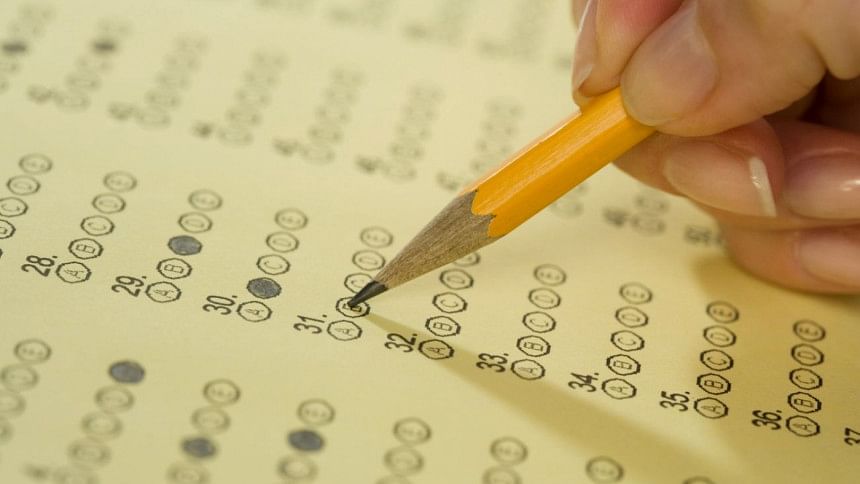
Competitive examinations are a long-standing and important fact of life for our youth entering public service. But few know that the Right to Information (RTI) Act of 2009 can play an effective role to ensure that these exams are transparent and fair.
Unfair and irregular practices in the exam system can impede access of worthy candidates to government jobs and facilitate the entry of the undeserving. The RTI Act has the potential to fight such corrupt practices in the system. A sizeable number of RTI interventions by exam-takers in the country over the last few years show that this is becoming a reality.
A common request for information is to ask to see the marks given by examiners on the answer papers. The objective is to find out if any unfairness can be discerned. Other requests include disclosure of marks and answer papers of qualifying candidates to check if favouritism played any role. A few interventions sought to know if government's quota policies for different underprivileged groups, such as the disabled or disadvantaged communities, were followed.
Examination-related RTI requests are typically submitted to public authorities administering competitive exams. It is not known how many requests receive positive responses. In most cases, the information sought appears to be denied. This is clear from case-studies of complaints which more persevering candidates file with the Information Commission (IC). The IC decisions are largely focused on denial by authorities to the information sought, citing long-standing institutional policy of secrecy and personal safety of the examiners.
A close look at the complaints submitted to the IC in the last five years demonstrates that this is one area where the RTI Act has been used by citizens more for monitoring the work of public institutions and ensuring their transparency and accountability, than for personal benefits.
A survey of IC decisions from 2013, when the first such complaint was made, to the end of 2017, shows that more than 20 complaints were dealt with by the IC during the period. A few examples will shed light on the matter. They will also reveal the shortcomings and challenges facing the RTI regime.
The cases involve authorities such as the Bangladesh Public Service Commission (BPSC), Bangladesh University of Engineering and Technology (BUET), Institute of Bankers, Bangladesh (IBB) and the Bangladesh Judicial Services Commission (BJSC). Exam-related RTI requests have also been made, among others, to the Primary Education Directorate and Comilla and Dhaka Education Boards.
In a well-known case, a candidate asked the Bangladesh Public Service Commission for marks he obtained, both in written and oral tests, in the 29th BCS examination held in 2013. The candidate was denied the oral marks as this would violate the Commission's policy of confidentiality and could endanger the lives of the examiners. When it came as a complaint to the IC, the latter directed BPSC to disclose the marks obtained for the oral exam too, since the latter is based on an aggregate of marks given by a group of examiners and not by a specific examiner, and hence would not endanger any of them.
The candidate had also requested information on the qualifications of the examiner for the Science and Technology Paper. This request was denied on the ground that it would affect the examiner's safety. The IC, however, directed BPSC to simply disclose the qualifications of the relevant examiner without disclosing his/her identity.
Another request of the candidate was for the scores, both for written and oral exams, obtained by persons who were placed last on the lists of candidates who qualified for appointment to such services as: foreign affairs, public administration, police, tax and customs. The IC asked the complainant to reapply to BPSC with a more specific description of the information sought. Overall, it was a well-argued decision by the IC.
Sadly, however, when the complainant reapplied, the BPSC not only refused to provide the information but ended up challenging the IC decision at the High Court. The latter asked the government and the Information Commission to explain why the decision should not be declared to be of no legal effect. As neither party has so far responded to the HC ruling or, even if they did, it has not come up for hearing, the matter has remained unresolved. Due to this, all RTI applications relating even to subsequent BCS examinations are routinely rejected by the BPSC; the IC, too, refuses to entertain complaints on them.
In an analogous complaint, related to the Institute of Bankers, Bangladesh, the IC had similarly directed for the release of requested information. The Institute likewise challenged the decision in the High Court. As in the earlier case, the matter has since then remained unresolved as no party appears to have responded to the HC ruling.
The IC deserves credit for taking the position in favour of transparency and disclosure. However, it is disconcerting that it has so far not defended it at the High Court. Government support to the IC verdict will be a tremendous encouragement for citizens and a boost for the Act. More concerted civil society efforts are necessary to resolve the stalemate.
In a case involving BUET, the applicant asked for copies of answer papers relating to results of semester examinations held in 2013 and 2014. The information was refused on grounds similar to the preceding examples. In the complaint case that emerged, the IC once again decided in favour of disclosure. However, BUET then claimed that the answer papers had been destroyed. As this was not reported by BUET authorities at earlier hearings of the IC, it became a mockery of the RTI process.
A more hopeful case with the Bangladesh Judicial Services Commission related to a request for information on the number of candidates appearing in the Judicial Services examination; the gender balance; the number of physically challenged; how many among them passed the exams and what numbers they obtained; how many were appointed as judges, etc.
Not receiving the information requested, the applicant filed a complaint to the IC. At the IC hearing, the complainant explained that the basic purpose of his application was to find out if the rights of candidates with various disabilities were violated in the selection process. On the other hand, the representative of BJSC argued that the information was not disclosable as they were of a confidential nature and exempted.
In this case, too, the IC decided that after the announcement of the results, the information in question became public and hence disclosable. And because the quota for persons with disability was introduced after the examinations in question were held, IC found the inability of BJSC to provide the requested information justified. However, being dissatisfied with the disclosure directive, the BJSC subsequently submitted a review petition to the IC, which the latter squashed as there was no scope for it in the RTI Act. It is not known if the information has been subsequently released. Hopefully, the matter will not end up as a writ petition to the HC.
Transparency in the selection of candidates for appointment in different public services has clearly emerged as a matter of grave concern to citizens, as revealed through their RTI applications. It is important that the government and the Information Commission pay due attention to such concerns and help citizens to play a constructive role to take this most important law forward. It will benefit citizens and the state alike.
Shamsul Bari and Ruhi Naz are Chairman and Project Coordinator (RTI section) respectively of Research Initiatives, Bangladesh (RIB).
Email: [email protected]



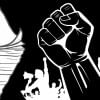
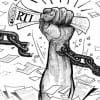
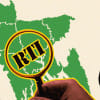
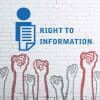
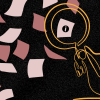


Comments